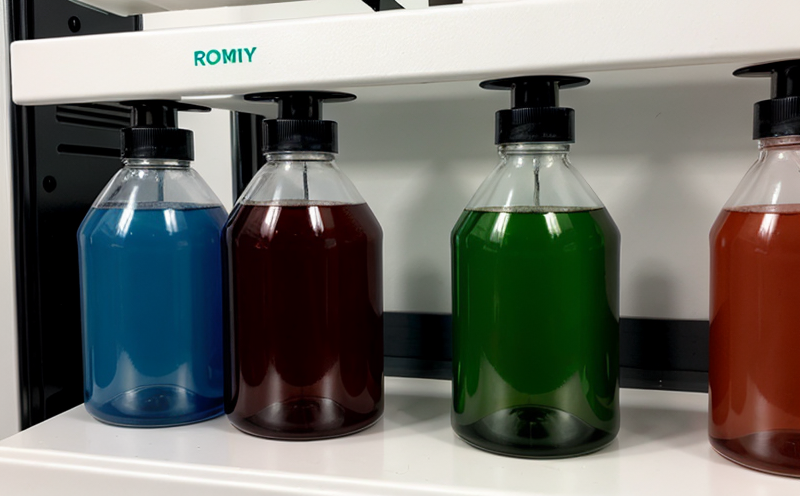ISO 180 Charpy Impact Polymerization Testing
The ISO 180 Charpy impact test is a widely recognized method used to assess the resistance of polymer materials to impact. This test evaluates how much energy a material can absorb before fracturing, providing critical insights into its toughness and durability. In industries such as automotive, construction, and consumer goods, where material integrity is paramount, this test ensures that components meet strict quality standards.
The Charpy impact test involves subjecting specimens to controlled impact forces using a pendulum-type machine. The primary parameter measured during the test is the energy absorbed by the specimen before fracture, known as the notched impact strength (J/m). For polymers, this value can vary significantly based on factors like molecular weight, chemical composition, and processing conditions.
ISO 180 specifies precise protocols for preparing specimens, applying the test force, and interpreting results. It is crucial that labs adhere to these standards to ensure accurate and comparable data across different testing facilities. The Charpy impact test plays a vital role in quality control, ensuring that products meet industry-specific requirements.
In practice, the test involves cutting cylindrical or notched specimens from the material under study. These samples are then placed into a machine designed to deliver a controlled impact force. The energy absorbed during fracture is recorded and compared against specified thresholds. This testing process helps in identifying weaknesses within the material structure, which can be critical for product development.
The importance of this test cannot be overstated, especially in sectors where failure due to impact could lead to catastrophic consequences. For example, in automotive manufacturing, ensuring that bumpers or structural components absorb impacts without fracturing is essential for safety and performance. The Charpy impact test ensures that these materials meet the necessary standards.
The ISO 180 standard also includes acceptance criteria based on specific thresholds of energy absorption. These thresholds vary depending on the type of polymer being tested, making it critical to follow precise protocols. Compliance with these standards is not only a regulatory requirement but also an assurance of product reliability and safety.
In summary, ISO 180 Charpy impact testing is essential for quality managers, compliance officers, R&D engineers, and procurement teams working in sectors where material toughness and durability are critical factors. By adhering to this standard, labs can provide accurate, reliable data that supports informed decision-making and ensures product integrity.
Why It Matters
The ISO 180 Charpy impact test is of paramount importance in ensuring the quality and safety of polymer-based products. This testing method helps identify potential weaknesses within materials, allowing for improvements before they reach the market. The data generated from this test can influence product design and manufacturing processes, leading to safer and more reliable products.
In industries such as automotive, where components are exposed to significant impact forces during use, the Charpy test ensures that materials like polypropylene bumpers or ABS body panels can withstand real-world conditions. For construction, ensuring that structural polymers absorb impacts without fracturing is crucial for safety and longevity of infrastructure.
The results from this testing method also inform regulatory compliance. Many international standards mandate adherence to specific impact strength criteria. For instance, automotive manufacturers must ensure their bumpers meet the specified notched impact strength requirements set by regulatory bodies such as ISO or ASTM.
From a research and development standpoint, the Charpy test provides valuable insights into material behavior under stress. Engineers can use this data to refine formulas and manufacturing processes, leading to improved performance and durability of products. This testing method also facilitates comparisons between different polymer types and formulations, aiding in material selection for new applications.
In summary, ISO 180 Charpy impact testing is essential not only for ensuring product safety but also for driving innovation and compliance within the industry. By adhering to this standard, labs can provide data that supports informed decision-making and ensures product integrity.
Eurolab Advantages
Eurolab prides itself on delivering high-quality polymerization testing services, including the ISO 180 Charpy impact test. Our team of experts is well-versed in international standards and can provide tailored solutions for your specific needs.
- Accurate Results: Our state-of-the-art equipment ensures precise measurements, providing reliable data that you can trust.
- Comprehensive Services: From specimen preparation to final analysis, we offer a full suite of services to meet all your testing requirements.
- Regulatory Compliance: We ensure that our tests comply with international standards such as ISO 180, ensuring you are in line with global regulations.
We understand the importance of accurate and reliable data in making informed decisions. Our experienced team is dedicated to providing you with the highest level of service, ensuring your products meet the necessary quality standards.
International Acceptance and Recognition
- ISO 180: The ISO 180 Charpy impact test is widely recognized in industries such as automotive, construction, and consumer goods. It provides a standardized method for assessing the toughness of polymer materials.
- ASTM D6110: This American Society for Testing and Materials standard complements ISO 180 by offering additional parameters for testing notched specimens.
The Charpy impact test is used globally, ensuring that data from different regions can be compared. Its acceptance in various countries underscores its reliability and relevance across industries. Compliance with these standards ensures that your products meet international quality benchmarks and are accepted worldwide.
For companies operating internationally, the ISO 180 standard provides a uniform method for testing polymer materials, facilitating trade and collaboration between different regions. This global recognition enhances trust in test results and supports consistent quality across diverse markets.





